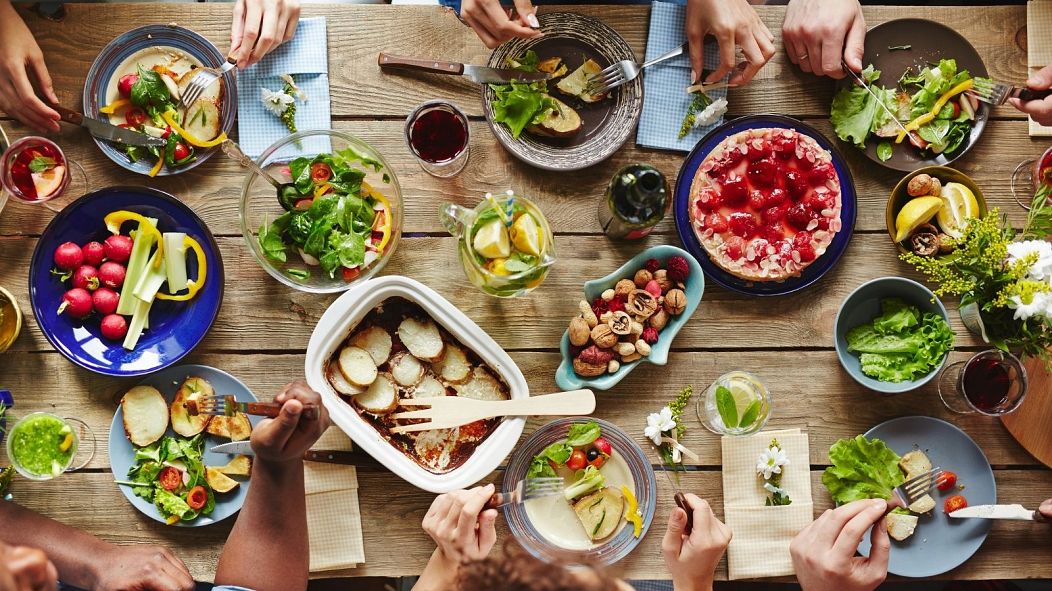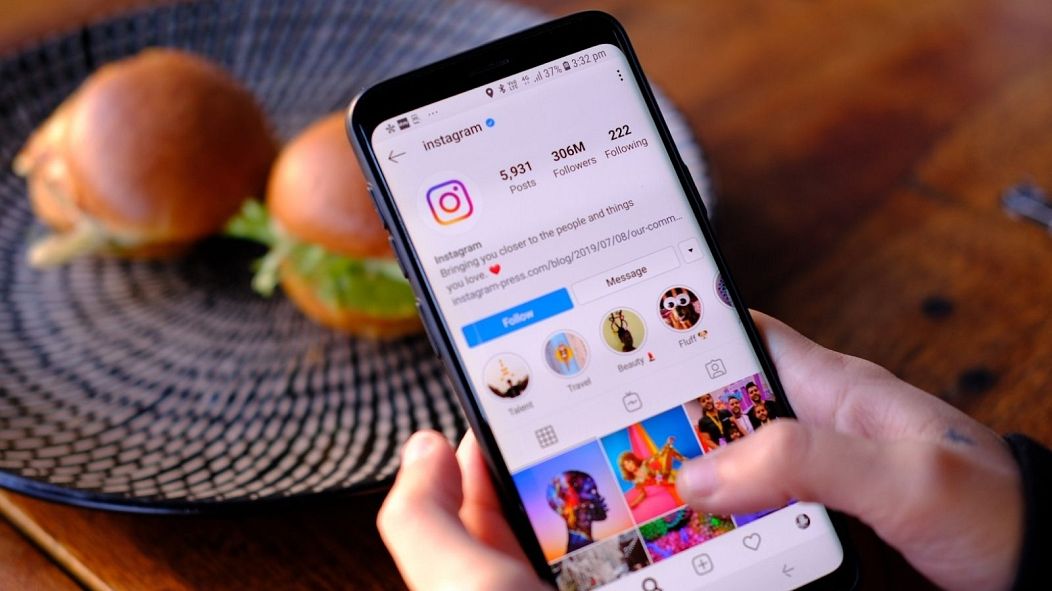This anti-diet approach to losing weight is all about trusting your instincts. And that means eating what you want, when you want.
'Dieting' has become a dirty word. Possibly even more so throughout the pandemic, as many of us may have turned to comfort eating during lockdown. In fact, when it comes to losing weight and eating more healthily, consumers “equate the word diet with deprivation, and they know deprivation doesn't work," says Susan Roberts, professor of nutrition and psychiatry at Tufts University in the U.S.
Nowadays, rules are out and instinct is in, as the health-conscious admit to feeling trapped by restrictive meal plans and struggle to lose weight. In the last 10 years, the number of Americans counting calories has gone down, an NPD Group study reports. Instead, shoppers are now more likely to seek items with minimal processing and no artificial ingredients than adopt a diet.
What is 'intuitive eating'?
It has become a trendy term in the health and fitness space, but is it a credible approach to dieting? In fact, it's the antithesis to dieting, having been dubbed the ‘anti-diet’ by nutritionists. Intuitive eating was first coined in the 1990s by dieticians Evelyn Tribole and Elyse Resch and is all about rejecting rules, constraints or schedules that surround food and learning to listen to the body.
The duo’s first book, ‘Intuitive Eating: A Revolutionary Program that Works’, mapped out 10 principles which have moulded the philosophy ever since. These include learning how to "honour your hunger", "make peace with food" and "respect your fullness". In theory, this should mean you can eat whatever you want, whenever you want, as long as you’re paying attention to your body’s signals and able to stop when feeling satisfied. "Life is not meant to be spent meal prepping, counting calories, weighing or counting macros…it is meant to be enjoyed!" says qualified Health & Mindfulness Coach Louise Murray.
The key is to give yourself unconditional permission to eat all foods without guilt or moral judgement.
For Alice Bugden, a 25-year-old recruitment advisor in Bristol, it worked really well.
“I really love it,” she tells me. “It's so so liberating for someone like me who has spent literally 25 years resenting what I look like and losing touch with what it feels like to be hungry/satisfied.”
Lily Lang is 29 and a counsellor from London. She agrees with Alice, “initially, it can be a little scary, people often worry that they will eat and eat and never be able to stop, especially if they have come from a place of binging or restriction."
But it "really is a fantastic way to make peace with food", she says, "discovering IE has been the most valuable tool during my own eating disorder recovery."
However, as is the case with any lifestyle shift, “you’ve got to really understand it,” Alice continues. “It’s not a diet and the goal is not weight loss,” she says, “it’s more about losing a preoccupation with food and weight.”
“It feels good not to punish myself for overeating,” Alice concludes.
A study published last month backs up Alice’s and Lily’s positive experience, concluding that intuitive eating longitudinally predicts better psychological health and lower use of disordered eating behaviours. Around 1,500 participants were studied, between 2010 and 2018, and results revealed that by the end of the 8 years, those who practiced intuitive eating were less likely to exhibit unhealthy weight control behaviours, such as fasting and binge eating, had better body satisfaction and higher self-esteem.
Does intuitive eating work for everybody?
Geneticist Dr. Giles Yeo agrees intuitive eating can positively benefit people, but takes care to point out, “it is not the panacea for obesity.”
For Yeo, the question to take into account is why some people eat more than others. “Because of their genetic hand, some find it more difficult to say ‘no’ to food than others.” What’s more, body-weight is simply “the function of many thousands of food decisions over the past few years,” he says. “If we are 5% less likely to say ‘no’ over those thousands of decisions, that would be thousands of calories, explaining why some folk are small, medium or large.”
As a result, “intuitive eating is likely to be effective for some (perhaps even many)” but is not guaranteed to work for everyone.
Some are even more sceptical. Dr. Kate Gregorevic is a geriatrician and healthy ageing advocate, but she has her doubts when it comes to intuitive eating. In the past, she has even described it as “setting yourself up to fail”, pointing out a fatal flaw within the philosophy – social and economic context.
“One of the challenges of intuitive eating is that the cheapest most available foods are the ones that are almost impossible to eat intuitively because they have been designed to overcome satiety signals,” she tells Euronews Living. Thus, her primary concern surrounding intuitive eating is that “it puts too much emphasis and blame on the individual without looking at the social and economic context of food choices.”
Gregorevic maintains “dietary patterns follow socioeconomic lines.” What you eat is never solely down to individual choice, “it is due to affordability, availability and accessibility.”
“While intuitive eating might work well for some people, without addressing broader social issues, it won’t be possible to ensure equal dietary choices for all,” she says. Dr Gregorevic is the founder of an online exercise and wellbeing program, Project Three Six Twelve.
The influence of social media in the anti-diet sphere
The hashtag #intuitiveeating has now been used over 1.5 million times on Instagram.
Registered dietitian nutritionist Samantha Cassetty points out that social media is a huge driver of the intuitive eating movement and it may be doing more harm than good.
“Nutrition experts on Instagram are posting everything from oversized bagels to pizza to burgers to monstrous ice cream cones and it may be sending the wrong message,” Cassetty tells NBC, calling a lot of it ‘food porn.’
“I don’t agree that the desire to lose weight is always a sign of self-loathing as some anti-diet experts would have you believe,” she says.
The secret to intuitive eating is informed eating
The fact remains that a considerable amount of people claim to have been helped by the intuitive eating philosophy. A quick Google search will alert you to numerous articles and health blogs with titles like, ‘How Intuitive Eating changed my life’ and ‘How to lose weight by listening to your body’.
Led by Dr. Laura Thomas, the London Centre for Intuitive Eating is an example of a help-centre designed specifically to offer body affirming care, using a non-diet and person centred approach. The team offer two popular courses, the ‘Just Eat It’ online option intended for those who “spend 90% of their day feeling anxious about what to eat”, and the ‘Raising Intuitive Eaters’ course for parents who want their kids to have a healthy relationship with food.
So perhaps the criticism is not down to the method, it’s in the name. Celebrity fitness trainer and health expert Chalene Johnson takes issue with the phraseology of intuitive eating. In her popular podcast, The Chalene Show, she makes a distinction between ‘intuitive’ and ‘informed’ eating.
“Who is it that gets to decide how to define the term intuitive eating?” she says. It’s about “listening to your internal dialogue, noticing that you’re full and not eating again until you’re hungry”, but you also have to be “informed on how the body works”, for the approach to succeed.
Being informed means knowing “how your body will respond when foods are inflammatory to you,” Chalene continues. “So if I am informed of which foods cause me digestional distress, make me puffy, tired, or develop a rash – and I choose to eat them – then that’s ok, it’s an informed decision.”
She concludes, “maybe intuitive eating is misleading, maybe we need to change the phraseology.” In other words, while intuitive eating might be a healthy, body-positive approach to food, brushing up on basic nutrition and making note of the foods that both agree and disagree with you might be even more important.
“In reality, most of us are following some form of restrictive eating, but should be striving toward informed eating — as I describe it — at all times,” says Chalene.













